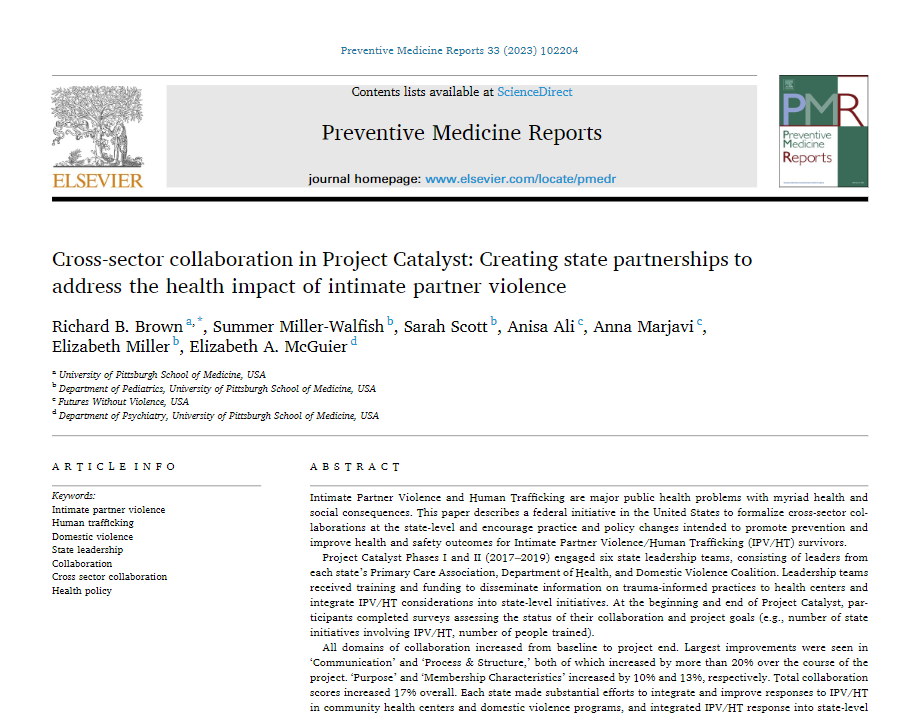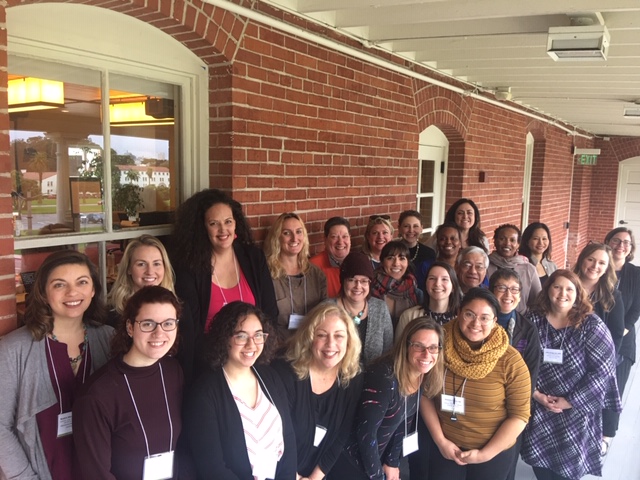
Richard B. Brown, Summer Miller-Walfish, Sarah Scott, Anisa Ali, Anna Marjavi, Elizabeth Miller, Elizabeth A. McGuier.
Abstract: Intimate Partner Violence and Human Trafficking are major public health problems with myriad health and social consequences. This paper describes a federal initiative in the United States to formalize cross-sector collaborations at the state-level and encourage practice and policy changes intended to promote prevention and improve health and safety outcomes for Intimate Partner Violence/Human Trafficking (IPV/HT) survivors.
Project Catalyst Phases I and II (2017–2019) engaged six state leadership teams, consisting of leaders from each state’s Primary Care Association, Department of Health, and Domestic Violence Coalition. Leadership teams received training and funding to disseminate information on trauma-informed practices to health centers and integrate IPV/HT considerations into state-level initiatives. At the beginning and end of Project Catalyst, participants completed surveys assessing the status of their collaboration and project goals (e.g., number of state initiatives involving IPV/HT, number of people trained).
All domains of collaboration increased from baseline to project end. Largest improvements were seen in ‘Communication’ and ‘Process & Structure,’ both of which increased by more than 20% over the course of the project. ‘Purpose’ and ‘Membership Characteristics’ increased by 10% and 13%, respectively. Total collaboration scores increased 17% overall. Each state made substantial efforts to integrate and improve responses to IPV/HT in community health centers and domestic violence programs, and integrated IPV/HT response into state-level initiatives.
Project Catalyst was successful in facilitating formalized collaborations within state leadership teams, contributing to practice and policy changes intended to improve health and safety for IPV/HT survivors.


